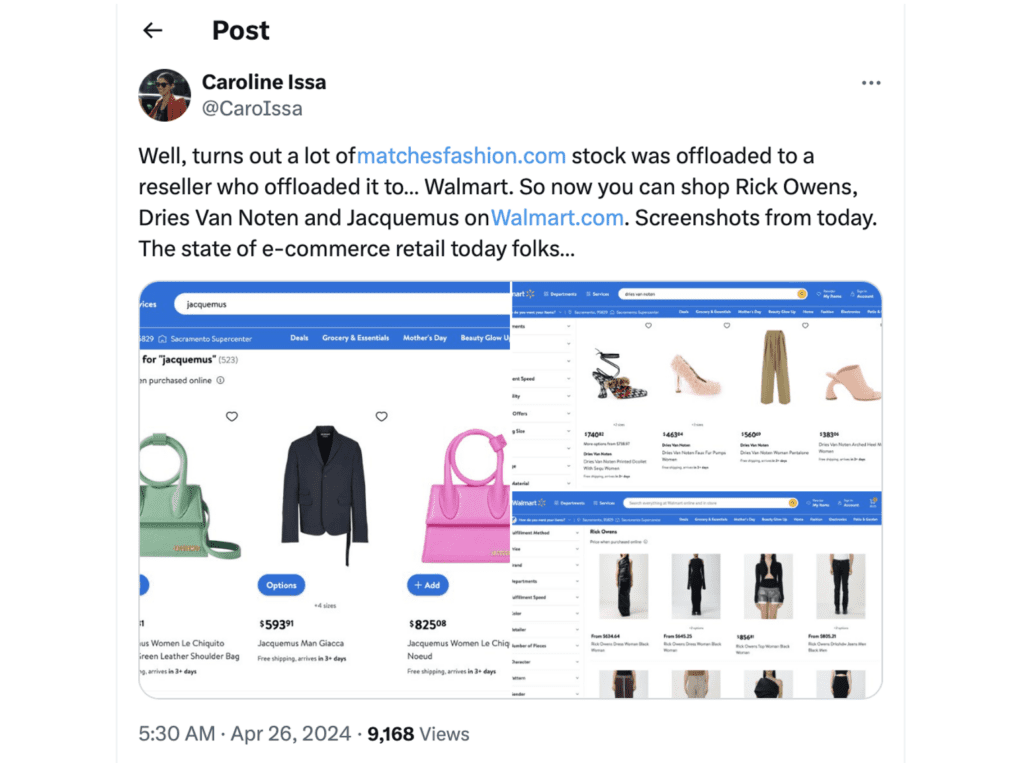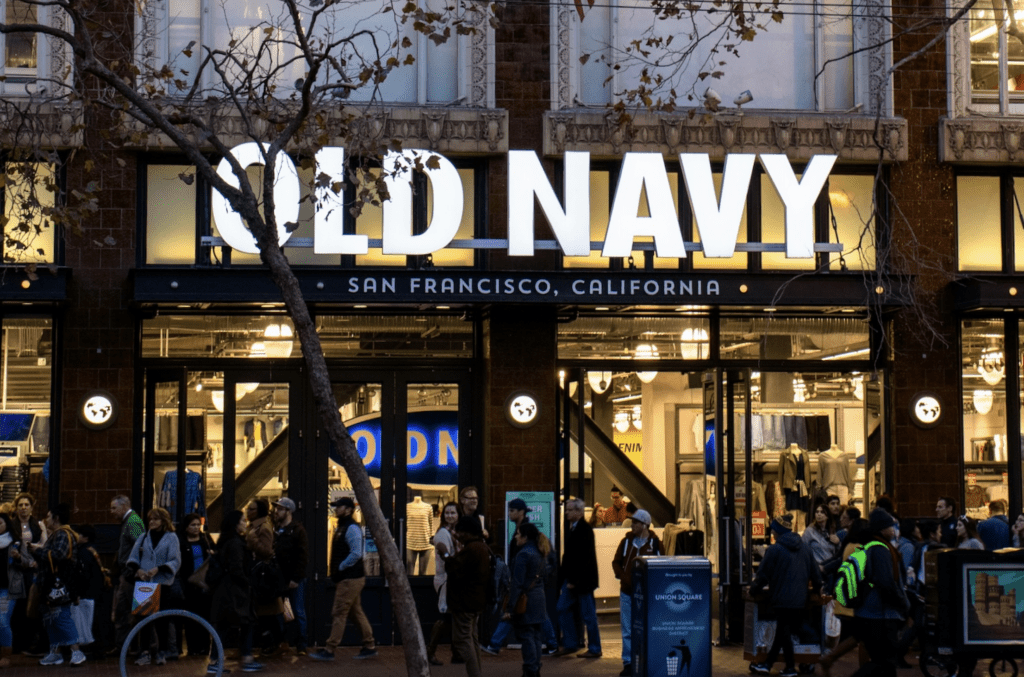Frasers Group shed a bit of light on the state of things for MATCHES, saying in a stock exchange notification on April 29 that it will buy back some of MATCHES’ intellectual property assets after putting the ailing online fashion platform into administration in March. Frasers Group has not provided specifics about which IP it will acquire from the administrators that are currently overseeing MATCHES’ operations or the value of the transaction. However, a read between the lines of Frasers Group’s statement provides some insight into what the Mike Ashley-owned retail group has planned and what it might mean for the brands whose cash and clothing hangs in the balance, as MATCHES currently owes of £36 million in debts to some 541 unsecured creditors, including the likes of Gucci, Prada, Saint Laurent, and Bottega Veneta.
In a statement provided to the London Stock Exchange on Monday, Frasers Group revealed that in furtherance of its deal to acquire “certain” MATCHES IP assets (presumably, the company’s trademarks and web domains, among other things) from Teneo Financial Advisory, it “has granted a license that allows the [company’s] administrators to sell the stock that MATCHES holds through a period of continued trading for the benefit of the administration.” Frasers Group clarified that “brands and suppliers should be aware that all stock held by MATCHES does not form part of the transaction and the administrators continue to manage all operations of the business for the benefit of the administration.”
Terms & Conditions
As for what can be garnered from Frasers Group’s statement, a big part of the equation here seems to be the sizable amount of designer stock that MATCHES has on hand both for its physical retail stores and its e-commerce platform. First things first, while Frasers states that it has reached an agreement to enable administrators to continue to sell off MATCHES’ stock of garments, footwear, and accessories, Fox Williams partner Stephen Sidkin told TFL that there is likely more going on here than that, in large part because the administrators do not need Frasers permission and/or a license to sell the goods; as administrators of the company, Teneo already has the legal right to do so.
Part of what Frasers Group and Teneo may have agreed on is that the administrators will continue to sell off remaining stock under the MATCHES brand name and via its domain, which are likely now owned by Frasers Group as a result of the recently revealed transaction. At the same time, Frasers and Teneo may have reached an agreement on the conditions under which Teneo can sell off the existing stock held by MATCHES. For example, Sidkin says that in exchange for Frasers Group paying for the MATCHES IP assets, Teneo may have agreed that it will not sell the remaining stock to third-party liquidators or off-price retailers, such as TK Maxx.
(This would be a particularly timely issue, as reports this past week suggested that MATCHES’ administrators may have sold off at least some of its existing stock to third party resellers, which subsequently listed goods ranging from Jacquemus bags and Dries Van Noten shoes to Rick Owens apparel on e-commerce platforms, such as Walmart’s marketplace site.)

Placing certain conditions on how MATCHES’ existing inventory can be sold might be beneficial for Frasers Group if it is looking to avoid ruffling the feathers of its luxury brand partners, which are generally quite meticulous about where – and the conditions in which – their products are sold. Chances are, Frasers might want to avoid upsetting the luxury brands whose products are in limbo here, as it still does business with many of them by way of its Flannels subsidiary, per Sidkin. Moreover, it may be looking to stay on good terms with brands that were stocked by MATCHES in the event that it opts to use any of the newly-(re)acquired MATCHES IP to launch a Matches 2.0 venture.
Brands in the Balance
Even with some potential clarity as to what Frasers might do next and what it may have agreed to with regards to unsold stock that Teneo is trying to convert into cash, questions remain about where the brands stand and just how much control they can exert over the terms of sale of the remaining inventory. Much of this will depend, of course, on the terms of the individual agreements that brands previously entered into with MATCHES in furtherance of its sale of their wares in a pre-administration capacity.
But we may be able to say with some certainty that big brands likely inserted clauses in their agreements with MATCHES that govern things like resale (and in particular, restrict MATCHES’ ability to resell products via third-party sellers, for example, via selective distribution terms) and/or that give brands the right to buy-back unsold items at the end of the season to avoid items being offloaded to third-party sellers.
One of the trickiest elements here is price, as efforts by brands to impose minimum prices at which MATCHES (or other retail partners) can sell goods could run afoul of competition law. (In accordance with competition law in both the European Union and United Kingdom, resale price maintenance – when a manufacturer establishes set prices at which its products are to be resold by distributors – is generally considered to be inherently anti-competitive.) As such, brands generally cannot dictate the prices at which distributors sell their products. And for this same reason, Sidkin doubts that the agreement reached between Frasers Group and Teneo included terms aimed at controlling the price at which the administrators could sell off MATCHES’ stock, noting that this “would be borderline an infringement of competition (anti-trust) law.”
THE TAKEAWAY: Against this background and in light of the enduringly tumultuous state of the luxury e-commerce market, one of the big takeaways for brands here concerns title. “Going forward brands must ensure that they retain title in goods supplied in their terms and conditions of sale and that such terms and conditions are properly incorporated into the contracts that they enter into [with retail partners],” Sidkin contends. This is a nod to the fact that just by supplying a retailer like MATCHES with merchandise does not necessarily mean that brands are transferring ownership of the goods to the retailer; whether ownership/title of the products passes from the brand to the retail will depend on the terms of their agreement.
If these terms are not crafted properly, “brands may find themselves in situations that match the Matches disaster.”











